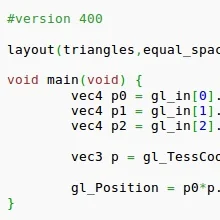Vulkan Working To Expose Video Encode/Decode, Machine Learning

Among some of the larger efforts that are "in flight" are improving the portability of Vulkan to closed platforms without native drivers (MoltenVK, etc), continuing to work on ray-tracing (complementing the existing VK_NV_ray_tracing), exposing video encode/decode through Vulkan, exposing machine learning capabilities, and the separate effort on safety critical Vulkan.
Exposing video encode/decode through Vulkan is an interesting one as it's an area where Khronos hasn't done much recently since the stale OpenMAX. Having video encode/decode capabilities in Vulkan could lead to perhaps some unification in the long-run of the different video encode/decode Linux APIs and the media players supporting different (or multiple) interfaces depending upon the GPU/driver combinations.
All of Vulkan's accomplishments over the past year were talked about as well as recent successes like Google's Stadia game streaming service relying on Vulkan and Android Q also aiming for a Vulkan 1.1 recommendation. There's also been a lot of interesting extension work in recent months as the Android ecosystem continues to grow.
The Khronos working groups will also be spending time in 2019 on enhancing SPIR-V to make it a better IR for compilers/tools/GPU back-ends, SPIR-V back-end work for Microsoft's HLSL compiler, continuing to work on CLSPV to run OpenCL kernels under Vulkan, and other tooling enhancements.
Those wanting to learn more about the latest Vulkan work and the other Khronos APIs can see the Khronos PDF slide decks from this week's event.
10 Comments

